CCHR critiques plan for mental health screening of all Americans aged 8-18 for anxiety and depression, adding to the Brave New World of psychiatric drugging and “organized crime” reported against children placed in behavioral centers
By Jan Eastgate
President CCHR International
October 21, 2022
A recommendation for all American children aged between 8 and 18 to undergo mental health screening for anxiety and depression is grossly irresponsible and dangerous. A panel of medical experts recommended that primary care doctors screen all children ages 8 to 18 for mental disorders, but the screening questionnaires are often influenced by pharmaceutical companies that manufacture psychotropic drugs or by psychiatrists with conflicts of interest with drug makers. It is scientific deception. This can lead to hundreds of thousands more children being incarcerated in behavioral health centers that one state legislator described as “organized crime against children.”
Such mass screening wreaks of a Brave New World society, as Aldous Huxley depicted in his 1932 novel, where a “utopian” but totalitarian society is bent on behavioral control using, as Huxley stated, the “technique of suggestion—through infant conditioning and, later, with the aid of drugs.”[1]
Screening is based on subjective questions and, as such, anyone could be wrongly assessed as “mentally disordered.” The Patient Health Questionnaire-9 (PHQ-9), first developed in 2001, has been administered as a universal intervention in high schools to identify and treat depression.[2] It is trademarked by Pfizer, the manufacturer of the antidepressant Zoloft (sertraline). In 2010, the company made both its PHQ and General Anxiety Disorder questionnaire (GAD-7) test available to primary care doctors “without copyright restriction and at no charge.” Sertraline went from being prescribed over 28 million times in 2004 to over 38 million in 2020—a 33% increase.[3] In 2006, Pfizer lost patent protection over the drug and generic versions went on the market. However, it still raked in over $30 billion between 1991 and 2013, selling Zoloft to consumers within the United States.[4]
The U.S. Preventive Services Task Force, which made the screening recommendation, also for the first time suggested that all American adults under the age of 65 be screened for anxiety.[5] Treatment would include “medication” which includes sedative-hypnotics, also known as benzodiazepines, that can become addictive within 14 days of taking them and which increase the risk of falls in the elderly.
In 2016, psychiatrist Vivek Datta, Assistant Professor of Psychiatry at UCSF Weill Institute for Neurosciences, noted:
“An aggressive approach to screening and treating depression leads to over-treatment of depression and pathologization of normal human experiences.” Further, “treating normal experiences as pathological undermines our own resiliency and sense of agency, and convinces us we are sick when we are not. Too many people have come to view themselves as defective, and powerless to change their life situations, when this may not be the case.”[6]
Over 60% of individuals diagnosed with depression in primary care do not even meet the criteria for major depressive disorder, if one were to even accept the validity of the American Psychiatric Association’s Diagnostic and Statistical Manual of Mental Disorders (DSM) criteria. This affects a staggering 80% of patients over 65. Treatment is typically with antidepressant drugs.[7]
Most people stay on the drugs for at least two years, putting themselves at potential risk of a variety of serious side effects. Some take them for a decade or more.[8] This has been a long-thought-out plan.
Taking the Brave New World analogy further, in 1967, a group of prominent psychiatrists and doctors met in Puerto Rico to discuss their objectives for psychotropic drug use on “normal humans” in the year 2000. In what could well be a sequel to Huxley’s novel—only it wasn’t fiction—their plan included manufactured “intoxicants” that would create the same appeal as alcohol, marijuana, opiates, and amphetamines, producing “disassociation and euphoria.” Drugs to “enhance the learning capacity of the individual…would likely alter the total educational process so that time consumed [educating on any subject] would be greatly reduced and the scope broadened to include ‘character education’ as well.”[9]
Today, this is being achieved through dubious, unreliable and unscientific screening. Diagnosing depression is an inherently subjective task, said Dr. Jeffrey Lieberman, past president of the American Psychiatric Association and recently disgraced racist psychiatrist. “It would be great if we could do a blood test or a lab test or do an EKG,” Dr. Lieberman said. But these do not exist for mental disorders.
In August of 2022, Raymond Dolan—considered one of the most influential neuroscientists in the world, “delivered this devastating blow to psychiatry, so damaging and so indefensible that psychiatry’s only response was to ignore it.” Published in the journal Neuron, he co-authored “Functional Neuroimaging in Psychiatry and the Case for Failing Better,” concluding:
“Despite three decades of intense neuroimaging research, we still lack a neurobiological account for any psychiatric condition. Likewise, functional neuroimaging plays no role in clinical decision making.”[10]
The fact that psychiatry has no scientific test, including imaging, for any mental disorder has been withheld from consumers and parents for decades, violating their informed consent rights. Knowledge of this makes it clear that screening questionnaires—based on opinions about behavior—are precarious at best. A study published in Molecular Psychiatry in July made international news because it thoroughly debunked the psychiatric-pharmaceutical industry theory that a chemical imbalance in the brain caused depression. That myth was the marketing mantra that led to mass antidepressant use.[11]
Screening uses subjective questions.
- A 2019 study by researchers at the University of Liverpool concluded that psychiatric diagnoses are scientifically worthless as tools to identify discrete mental health disorders. The study, published in Psychiatry Research, conducted a detailed analysis of five key chapters of the latest edition of the widely used DSM, on “schizophrenia,” “bipolar disorder,” “depressive disorders,” “anxiety disorders” and “trauma-related disorders.” A key determination was: “Diagnoses tell us little about the individual patient and what treatment they need.” Lead researcher Dr. Kate Allsopp, University of Liverpool, said:
“Although diagnostic labels create the illusion of an explanation they are scientifically meaningless and can create stigma and prejudice.”[12]
- Professor Peter Kinderman, University of Liverpool, added: “This study provides yet more evidence that the biomedical diagnostic approach in psychiatry is not fit for purpose. Diagnoses frequently and uncritically reported as ‘real illnesses’ are in fact made on the basis of internally inconsistent, confused and contradictory patterns of largely arbitrary criteria. The diagnostic system wrongly assumes that all distress results from disorder, and relies heavily on subjective judgments about what is normal.”[13]
- In an August 2019 report, “Examining the Unanticipated Adverse Consequences of Youth Suicide Prevention Strategies,” the authors admitted, “[T]here has been little systematic review of adverse consequences for youth-focused behavioral interventions. Individual studies have suggested unintended consequences of psychosocial interventions…but most studies have not systematically assessed for and reported these outcomes.”
- Further, “In the area of suicide prevention among youth, in particular, there also has been no review and often little mention of the possibilities of unanticipated adverse consequences associated with interventions.”
- A study published in the July 2022 issue of Preventive Medicine was more emphatic when it concluded that depression screening of adolescents does not reduce their treatment for suicidal behaviors.[14]
Lee Spiller, the Executive Director of the CCHR chapter in Texas has long investigated the dangers of mental health screening in schools. He states: “School children represent a captive and, therefore, vulnerable population. The growing focus on Social and Emotional Learning, sometimes presented as a form of ‘character education,’ has increased the risk that children will be targeted because of perceived, or even invented emotional problems.” The passage of legislation allowing Texas’s schools to partner with mental health providers “certainly creates opportunities for unscrupulous providers to access this captive market,” he added.
A toolkit listed on the Texas Education Agency’s schoolmentalhealthtx.org website promotes a universal tier of services that includes so-called “mental health education and awareness campaigns,” teaching students to self-refer to counselors, universal mental health screening, referral pathways and more.[15]
In other words, parents may not be aware that their child is undergoing mental health treatment nor know of the potential deleterious consequences of this. Yet, according to the Rutherford Institute:
“Parents have a constitutional right to direct and control the upbringing of their children. Laws or governmental actions that unreasonably infringe the rights of parents to raise and educate their children according to their own values are constitutionally suspect…”[16]
Alan Schwartz of The New York Times exposed how disease-mongering and ruthless advertising by big Pharma had fed an eager medical system with false data, also capitalizing on the cooperation of unscrupulous “thought leaders” in child psychiatry, according to an article written by Dr. Allen Frances, former Chair of the DSM-IV Task Force. Frances continued to comment about “the massive commercialization of psychiatric disorders in the service of pharmaceutical profit—selling the ill through non-stop disease mongering in order to peddle the pill. Harried doctors and worried patients have bought into the medicalization of everyday life, turning distress and difference into mental disorder.”[17]
Fueling that are the checklist screenings, including for Attention Deficit Hyperactivity Disorder (ADHD). Dr. Keith Conners, who conducted the first trial of the ADHD stimulant Ritalin, developed several of these.[18] For example, the Child Behavior Checklist (CBCL/6-18); Conners’ Parent Rating Scale-Revised for parents/caregivers; Conners’ Teacher Rating Scale-Revised for teachers; and Conners-Wells’ Adolescent Self-Report Scale for teenagers.[19]
But Connors, considered “the father of ADHD,” having spent 50 years trying to legitimize it, criticized the percentage of Americans said to have ADHD, stating: “The numbers make it look like an epidemic. Well, it’s not. It’s preposterous … This is a concoction to justify the giving out of medication at unprecedented and unjustifiable levels.”[20]
Researchers say the “diagnosis has expanded globally via institutions such as schools, pharmaceutical industry, and western psychiatry along with the DSM, in all of which the psycho-medical discourse on deficit, disorder and disability is adopted and mobilized.”[21] The new recommendations for screening, if acted upon, will only expand this.
According to the 2022 published study, “The (Un)real Existence of ADHD—Criteria, Functions, and Forms of the Diagnostic Entity,” “ADHD is listed in DSM-5 under ‘Neurodevelopmental Disorders’ in spite of reviews showing that:
(a) genetic evidence on ADHD is inadequate and diffused with ambiguous interpretations;
(b) that no biological marker is diagnostic for ADHD, something that even DSM-5 authors themselves explicitly admit;
(c) the so-called ‘underlying mechanisms’ remain unknown, and
(d) no biological tests are available for its diagnosis.”[22]
The researchers from the Department of Education, Faculty of Educational Sciences, University of Helsinki, Helsinki, Finland and Department of Primary Education, Democritus University of Thrace, Greece, noted:
“Asserting that ADHD is a neurodevelopmental disorder is a scientific conceit on one hand and reflects the DSM’s political, cultural, and financial role in the psychiatrization of children’s everyday lives on the other.” [23]
In conclusion, the researchers stated: “like most psychiatric classifications, ADHD is premised on an arbitrary consensus among a small psychiatric community behind the DSM manual rather than on any new scientific breakthroughs. In other words, ‘psychiatrists do not prove things but decide things: they decide what is disordered and what is not, decide where to draw the threshold between normality and abnormality, decide that biological causes and treatments are most critical in understanding and managing emotional distress.’” [24]
The decision was also made to expand ADHD to include adults, with even less scientific evidence to substantiate this. In 2007, a cross-national survey of adult ADHD was developed and conducted worldwide with the support of psychotropic drug manufacturers or their corporations, such as Pfizer Foundation, Eli Lilly & Co, Ortho-McNeil Pharmaceutical, Inc., GlaxoSmithKline (GSK), Bristol Myers Squibb, Janssen Craig, Roche and Novartis.[25]
The bottom line is that any mental health screening will only increase the already inexcusable number of American children (more than 6.1 million aged 0-17) and adults being prescribed mind-altering psychiatric drugs—known to have serious adverse effects that include suicide, homicidal ideation, mania and violence.
- Danish researchers released the results of the largest-ever statistical analysis, reviewing and analyzing 70 antidepressant clinical trials of more than 18,000 participants and concluded that antidepressants doubled the risk of aggression and suicide in children and teens.[26]
- Carl Tishler, an adjunct associate professor of psychology and psychiatry at Ohio State University, said that with millions of children on psychotropics, any time that their doses begin or get increased or decreased, “it may cause a change in emotional state which may reduce impulse control.” This could contribute to suicidal urges.[27]
- A large-scale study published in PLOS Medicine found young adults between the ages of 15-24 were 43% more likely to be convicted of a homicide, assault, robbery, arson, kidnapping, sexual offense or other violent crime when taking antidepressants than whey they weren’t taking the psychiatric drugs.[28]
- The PLOS study came on the back of another report exposing the fraudulent research of GlaxoSmithKline’s antidepressant, Paxil. According to the review of the data used for Paxil’s approval, Paxil is not safe or effective for adolescents and there is significant risk of suicide associated with the drug.[29]
The ominent prediction given in the 1967 psychotropic drugs report should be a warning to us all. It boasted of psychiatry’s plans:
“Those of us who work in this field see a developing potential for nearly a total control of human emotional status, mental functioning, and will to act. These human phenomena can be started, stopped or eliminated by the use of various types of chemical substances. What we can produce with our science now will affect the entire society.”[30]
Jim Gottstein, an attorney who represents clients harmed by psychiatry, said one depression screening questionnaire ended up being “nothing more than a Drugging Dragnet.” “The high rate at which we are drugging America’s children with psychotropics,” he said, “is a national disgrace.”[31] The screening questions had been invented by a psychiatrist, David Shaffer, who had long-term ties to drug companies and was a consultant for Hoffman La Roche, Wyeth and GlaxoSmithKline (GSK). He was a member of a consensus panel discussing child and adolescent “bipolar” disorder held by Abbott, Bristol-Myers Squibb, GSK, Janssen, Johnson & Johnson, Eli Lilly, Novartis, Pfizer, and Solvay. While pushing for every teen to be screened based on his subjective questionnaire, Shaffer also claimed that antidepressants did not “increase the risk of suicidal thinking or attempts in youth” despite FDA warnings about this serious risk.[32] This was patently false.
“This is junk science at its worst,” said Dr. Jan Johnson, MD. “Follow the money, the trail leads right back to the drug companies.”[33]
The current recommendations for mental health screening for anyone age 8 to under 65 fails to take into account that there is no scientific evidence to substantiate a mental disorder from these checkbox questionnaires, and they are likely to lead to a massive increase in psychotropic drug prescribing. Further, once these fail, it creates a domino effect, perpetuating an increase in psychiatric institutionalization.
Congressman Ron Paul had championed parental rights against mental health screening of children, writing: “Everyone interested in parental rights and true health freedom must fight to make sure the [Federal] commission’s findings and dubious psychiatric science are never used as justification to force mental health screening on American kids at school without their parents’ consent…There has been a persistent lobbying effort, funded by pharmaceutical companies, to increase the number of these prescriptions to even more children. A universal screening program is the stated goal of these lobbyists.”[34]
Vera Sharav of the Alliance for Human Research Protection (AHRP) warned that mental health screening leaves “no room for individual choice—or the freedom for parents to say no to psychotropic drugs for their children. Such mandatory, government-endorsed screening programs contradict the freedoms guaranteed in a democratic society.”[35]
Parents can take steps to help protect their children, by signing a Parents’ Rights Form that Provides Opt-Out for School Mental Health Screening
An additional note: Mental Health Screening Creates Misbehavior—A Gateway to Teen Incarceration
The impact of mental health screening is even more telling when this leads to children and adolescents being prescribed behavioral mind-altering psychotropic “medications.” It puts them at risk of iatrogenic-drug-induced “problems” that can mark them for admission and commitment to psychiatric and behavioral facilities. Herein lies even graver risks.
The Missouri Speaker of the House Rob Vescovo said the abuse uncovered in behavioral schools “amounts to organized crime against children.”[36] Alabama youth psychiatric facilities have been called a “‘house of horrors’ for teen abuse” and a “living nightmare.” Attorneys representing one teen sued a for-profit psychiatric facility because of its “culture of violence.”[37]
The Georgetown Broadstep behavioral health center in North Carolina, owned by a private investment firm, was sued over allegations that employees dragged a 13-year-old boy, punched him and broke his arm after “he did not want to go to bed because he was hungry.”[38] The Georgetown City Council revoked the center’s business license on the basis of it being a “public nuisance.”[39]
The New York Times recently reported, “This industry has been voracious in finding struggling teens to pull into its web. The foster care system, the criminal justice system, the mental health system and the public school system provide the industry with children—and revenue…The industry also cuts corners in the pursuit of profit.” [40]
In February, a damning report was issued by a Private Equity Stakeholder Project that substantiated evidence of abuse and death in these facilities. Titled, “The Kids Are Not Alright: How Private Equity Profits Off of Behavioral Health Services for Vulnerable and At-Risk Youth,” it determined—as CCHR Int has—that “For-profit youth behavioral health facilities and for-profit foster care have garnered criticism from youth justice and disability rights advocates.” In residential facilities, criticism has included “physical, sexual, and emotional abuse; forced isolation; use of physical and chemical restraints; and squalid living conditions.” It exposed several psychiatric hospital companies, including Acadia Healthcare and Sequel Youth and Family Services.[41]
These companies’ behavioral facilities have been scrutinized, especially for restraint deaths.
The Times reported that, in fact, it is unknown “exactly how many children have died at the hands of this industry. One estimate counted 86 deaths from 2000 to 2015. More have died in the years since.”
The Atlanta Journal-Constitution also exposed: “Regulators appear to impose few sanctions …even when government inspectors discovered cases of abuse, negligence or shocking systemic problems. Instead, government regulators routinely rely on hospitals to correct their own deficiencies and accrediting organizations say they partner with hospitals to help them improve.” “The oversight at these facilities is notoriously inept and lacking,” said Darren Penn, an Atlanta attorney who represented the family of Sarah Reum, a 22-year-old who died by suicide at Ridgeview Monroe facility while under staff “watch.”[42]
CCHR is committed to its ongoing work to insist that children must be safeguarded against this government-supported psychiatric intrusion—mental health screening—in their lives.
CCHR’s co-founder, the late Professor Thomas Szasz, M.D. took this a step forward when he said that child psychologists and psychiatrists “rob the child of his most important possession, himself.… Thrusting fake intimacy and pretended care on them…is our distinctively modern method of harming children in the name of helping them.
“Child psychology and child psychiatry cannot be reformed. They must be abolished.”
More to read on this issue:
CCHR Continues to Warn of Childhood Mental Health Screening Risks and Violence
Parents’ Rights Form Provides Opt-Out for School Mental Health Screening
Human Rights Group Wants Parents Better Informed About Psychotropic Drugs Prescribed to Children
CCHR Issues Resolution to Replace Forced Psychiatric Treatment and Torture with Human Rights

[1] Aldous Huxley, Brave New World (Granada Publishing Ltd., 1977; first published in Great Britain by Ghatto and Windus Ltd., 1932), p. 13
[2] https://jamanetwork.com/journals/jamanetworkopen/fullarticle/2785914
[3] https://www.statista.com/statistics/781658/sertraline-hydrochloride-prescriptions-number-in-the-us/
[4] https://www.prweb.com/releases/2013/1/prweb10382265.htm
[5] https://www.usnews.com/news/health-news/articles/2022-09-20/task-force-recommends-anxiety-screening-for-all-adults-under-65
[6] Vivek Datta, “Why Screening Everyone for Depression is a Terrible Idea,” MIA, 29 Jan. 2016, https://www.madinamerica.com/2016/01/why-screening-everyone-for-depression-is-a-terrible-idea/; https://profiles.ucsf.edu/vivek.datta
[7] Vivek Datta, “Why Screening Everyone for Depression is a Terrible Idea,” MIA, 29 Jan. 2016, https://www.madinamerica.com/2016/01/why-screening-everyone-for-depression-is-a-terrible-idea/
[8] “A Glut of Antidepressants,” The New York Times, 12 Aug. 2012, https://archive.nytimes.com/well.blogs.nytimes.com/2013/08/12/a-glut-of-antidepressants/
[9] Wayne O. Evans, Ph.D. & Nathan S. Kline, M.D. (editors), Psychotropic Drugs in the Year 2000, Use by Normal Humans, (Charles C. Thomas, Publisher, Illinois, U.S.A., 1971), pp. 79, 81
[10] https://www.madinamerica.com/2022/10/psychiatrys-hysterical-defense/; Matthew M. Nour, Yunzhe Liu, Raymond J. Dolan, “Functional neuroimaging in psychiatry and the case for failing better,” Neuron, 17 Aug. 2022, https://www.sciencedirect.com/science/article/abs/pii/S089662732200647X
[11] Joanna Moncrieff, Ruth E. Cooper, Tom Stockmann, Simone Amendola, Michael P. Hengartner and Mark A. Horowitz, “The serotonin theory of depression: a systematic umbrella review of the evidence,” Molecular Psychiatry, 20 July 2022, https://www.nature.com/articles/s41380-022-01661-0
[12] University of Liverpool, “Psychiatric diagnosis ‘scientifically meaningless,’” Science Daily, 8 Jul. 2019, https://www.sciencedaily.com/releases/2019/07/190708131152.htm
[13] University of Liverpool, “Psychiatric diagnosis ‘scientifically meaningless,’” Science Daily, 8 Jul. 2019, https://www.sciencedaily.com/releases/2019/07/190708131152.htm
[14] https://www.cchrint.org/2022/07/15/new-study-shows-depression-screening-does-not-reduce-teen-suicide/ citing: Kira E. Riehm, et al., “Emergency health services use and medically-treated suicidal behaviors following depression screening among adolescents: A longitudinal cohort study,” Preventive Medicine, Vol 161, Aug. 2022, https://www.sciencedirect.com/science/article/abs/pii/S0091743522001979; Marcus A. Banks, “Depression Screens Do Not Reduce Suicidal Acts in Teens: Study,” Medscape, 8 July 2022, https://www.medscape.com/viewarticle/976839
[15] https://schoolmentalhealthtx.org/wp-content/uploads/2021/10/TEA-Narrative.pdf
[16] “Parents Rights,” Rutherford Institute website, https://www.rutherford.org/issues/parents_rights
[17] Allen Frances, M.D., “Keith Connors, Father of ADHD, Regrets Its Current Misuse,” Psychology Today, 28 Mar. 2016, https://www.psychologytoday.com/us/blog/saving-normal/201603/keith-connors-father-adhd-regrets-its-current-misuse
[18] Allen Frances, M.D., “Keith Connors, Father of ADHD, Regrets Its Current Misuse,” Psychology Today, 28 Mar. 2016, https://www.psychologytoday.com/us/blog/saving-normal/201603/keith-connors-father-adhd-regrets-its-current-misuse
[19] https://chadd.org/for-professionals/clinical-practice-tools/
[20] Jacqueline Burt, “Don’t Believe Your Doctor When He Says Your Kid Has ‘ADHD’,” The Stir, 16 Dec. 2013, https://web.archive.org/web/20131219033438/http://thestir.cafemom.com/big_kid/165571/dont_believe_your_doctor_when
[21] Juho Honkasilta and Athanasios Koutsoklenis, “The (Un)real Existence of ADHD—Criteria, Functions, and Forms of the Diagnostic Entity,” Front. Sociol., 30 May 2022, https://www.frontiersin.org/articles/10.3389/fsoc.2022.814763/full
[22] Juho Honkasilta and Athanasios Koutsoklenis, “The (Un)real Existence of ADHD—Criteria, Functions, and Forms of the Diagnostic Entity,” Front. Sociol., 30 May 2022, https://www.frontiersin.org/articles/10.3389/fsoc.2022.814763/full
[23] Juho Honkasilta and Athanasios Koutsoklenis, “The (Un)real Existence of ADHD—Criteria, Functions, and Forms of the Diagnostic Entity,” Front. Sociol., 30 May 2022, https://www.frontiersin.org/articles/10.3389/fsoc.2022.814763/full
[24] Juho Honkasilta and Athanasios Koutsoklenis, “The (Un)real Existence of ADHD—Criteria, Functions, and Forms of the Diagnostic Entity,” Front. Sociol., 30 May 2022, https://www.frontiersin.org/articles/10.3389/fsoc.2022.814763/full
[25] “Cross-national prevalence and correlates of adult attention-deficit hyperactivity disorder,” The British Journ of Psychiatry (2007) 190: 402-409, http://bjp.rcpsych.org/cgi/content/full/190/5/402
[26] https://www.cchrint.org/2016/02/11/psych-plan-for-subjective-depression-screening/ citing: Sarah Knapton, “Antidepressants can raise the risk of suicide, biggest ever review finds,” The Telegraph, 27 Jan 2016, http://www.telegraph.co.uk/news/health/news/12126146/Antidepressants-can-raise-the-risk-of-suicide-biggest-ever-review-finds.html.
[27] https://www.cchrint.org/2017/07/11/human-rights-group-wants-parents-informed/ citing: Susan Scutti, “‘Alarming’ rise in children hospitalized with suicidal thoughts or actions,” CNN, 5 May 2017, http://www.cnn.com/2017/05/05/health/children-teens-suicide-study/index.html
[28] https://www.cchrint.org/2016/02/11/psych-plan-for-subjective-depression-screening/ citing: Karen Kaplan, “Rx for violence? Crime risk rises for young people on antidepressants, study says,” Los Angeles Times, 15 Sep 2015, https://www.latimes.com/science/sciencenow/la-sci-sn-antidepressant-ssri-violent-crime-risk-20150915-story.html
[29] https://www.cchrint.org/2016/02/11/psych-plan-for-subjective-depression-screening/ citing: Ashley Welch, “Popular antidepressant Paxil not safe or effective for teens, study finds,” CBS News, 16 Sep 2015, http://www.cbsnews.com/news/paxil-antidepressant-ineffective-unsafe-for-teens-study-finds/
[30] Wayne O. Evans, Ph.D. & Nathan S. Kline, M.D. (editors), Psychotropic Drugs in the Year 2000, Use by Normal Humans, (Charles C. Thomas, Publisher, Illinois, U.S.A., 1971), p. xx
[31] Evelyn Pringle, “TeenScreen—Normal Kids Labeled Mentally Ill,” Scoop Independent News, 2 Aug. 2006, https://www.scoop.co.nz/stories/HL0608/S00010.htm
[32] https://www.cchrint.org/issues/psycho-pharmaceutical-front-groups/teenscreen/
[33] Evelyn Pringle, “TeenScreen—Normal Kids Labeled Mentally Ill,” Scoop Independent News, 2 Aug. 2006, https://www.scoop.co.nz/stories/HL0608/S00010.htm
[34] https://www.cchrint.org/2011/12/14/no-mandatory-mental-health-screening-for-children-by-ron-paul/
[35] https://www.cchrint.org/2022/04/18/parents-rights-form-provides-opt-out-for-school-mental-health-screening/citing: Vera Sharav, Alliance for Human Research Protection (AHRP), http://ahrp.org/two-thirds-foster-care-children-in-mass-on-psych-drugs_globe-psychiatry-soviet-experience-american-fallacy/, 11 Aug. 2004.
[36] “Missouri House speaker urges federal investigators to shut down Agape school,” NBC 5 News, 26 Sept. 2022, https://www.ksdk.com/article/news/local/missouri-house-speaker-federal-investigators-shut-down-agape-school/63-53cebed2-8448-4b14-8c65-98e108e805d3
[37] “Alabama psychiatric facility a ‘living nightmare’ for teen slammed to ground, knocked unconscious: lawyer,” AL.com, 24 Mar. 2022, https://www.al.com/news/2022/03/alabama-psychiatric-facility-a-living-nightmare-for-teen-slammed-to-ground-knocked-unconscious-lawyer.html
[38] https://www.live5news.com/2022/07/20/lawsuit-health-clinic-employees-punched-13-year-old-broke-his-arm/
[39] https://www.live5news.com/2022/07/22/georgetown-revokes-child-behavioral-health-centers-business-license-due-public-nuisance/; https://www.wmbfnews.com/2022/07/28/georgetown-city-council-vote-written-order-involving-behavioral-health-centers-business-license/
[40] “CAN YOU PUNISH A CHILD’S MENTAL HEALTH PROBLEMS AWAY?” New York Times, 11 Oct. 2022, https://www.nytimes.com/interactive/2022/10/11/opinion/teen-mental-health-care.html
[41] https://www.cchrint.org/2022/02/21/the-kids-are-not-alright-report-confirms-profit-is-put-before-troubled-teens-mental-health-safety/
[42] Carrie Teegardin, “Even with troubled histories, psych hospitals face few sanctions,” Atlanta Journal-Constitution, 13 Oct. 2022, https://www.ajc.com/news/investigations/even-with-troubled-histories-psych-hospitals-face-few-sanctions/V34UC2TIWJGB3KQSPZHQ355QMQ/


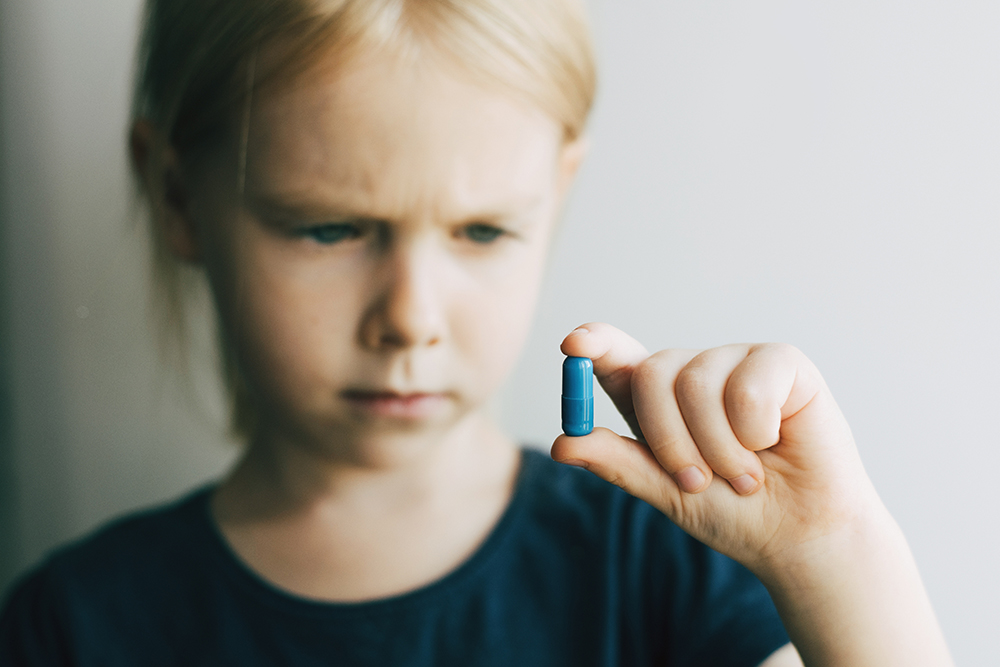
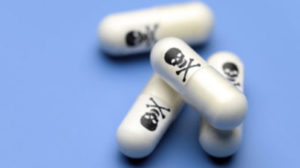
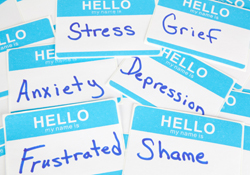

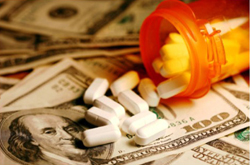
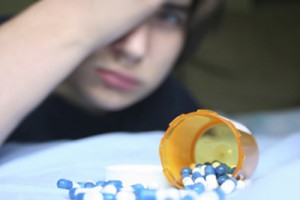

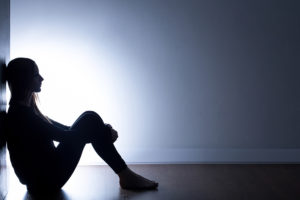
SHARE YOUR STORY/COMMENT